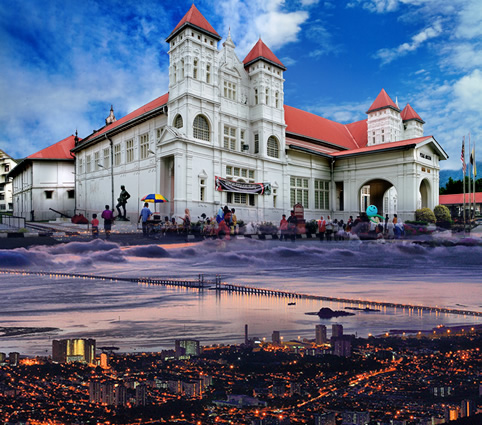SALE

The historic city of Georgetown in Penang is a UNESCO world heritage site founded in 1786 by Captain Francis of the British East India Company. Known for its beaches and old world charm, visit the Khoo Kongsi Chinese clan houses with elaborate and highly ornamented architecture. Taste some local delicacies such as asam laksa and pasembur at the various open air stalls and unwind at the famous Cheong Fatt Tze Mansion.
The tin mining city of Ipoh in Perak is the gateway to Cameron Highlands. Its city center is characterized by colonial era Chinese shop houses and historical buildings from the British rule such as the Railway Station, Town Hall and Court House. Kellie’s Castle, Tempurung Cave, Kek Lok Si Temple and Cheong Fatt Tze Mansion are just a few of the must visit places while in Perak.
At approximately three kilometers long, it is one of the largest limestone caves in peninsular Malaysia. Tempurung Cave has three large chambers, a multitude of stalactites and stalagmites, and five large domes with ceilings that resemble coconut shells.
Built by a Scotsman named William Kellie Smith for his beloved wife and children, the castle incorporates many elements of the Hindu religion due to his fascination of India. He enlisted 70 skilled Indian workers for the construction of the mansion, but most of them contracted the Spanish Flu and died in the early 1920s. To this day, the castle remains unfinished.
Established in 1961, this zoo covers an area of 34 acres and is the oldest zoo in Malaysia. It is home to more than 180 species of animals including tigers, lions, elephants, giraffes, hornbills, orang utans and hippos. Visitors can also opt for the night safari where they get to see animals that are only active at night.
A recreation of a typical rich 19th century Baba home, this museum is a testament to the Baba Nyonya culture. With a mix of English tiles, Scottish ironwork, European art and furniture, and Chinese carved wooden panels, this mansion houses over 1,000 pieces of antiques and collectibles.
One of the largest and finest temples in Southeast Asia, this temple was built in 1891. The entrance of the temple is right next to Air Itam River with stalls selling local products. A pathway leads to Tortoise Pond and a huge boulder inscribed with a poem written by a famous scholar from the Tang Dynasty.
Also known as the Blue Mansion, this typical Chinese courtyard house was built near the end of the 19th century. Commissioned by Cheong Fatt Tze, this mansion is divided into two main components – the main house and two side wings. Its architecture is a mix of Western and Chinese influence seen by its English stained glass and Chinese calligraphy.
© 2015 Travel Dynamics - All Rights Reserved